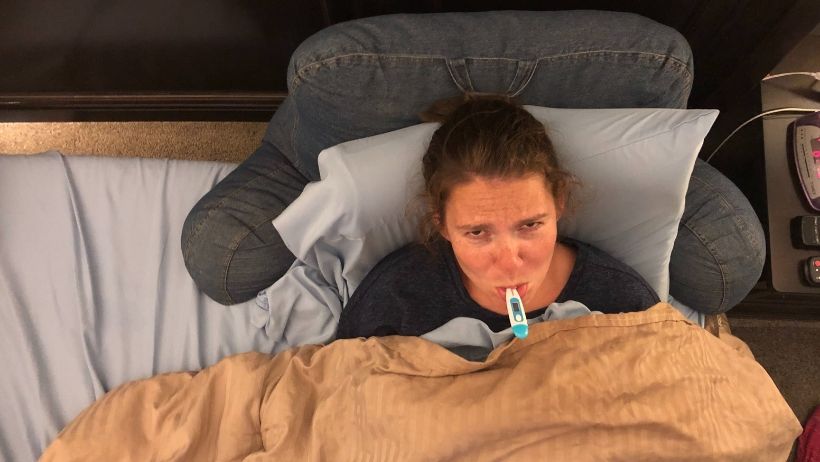Self-care isn’t a strength of mine. Often I will not be feeling my best, and instead of taking a day off to recover and heal my stuffy nose or calm a fever, I’ll take some medicine and continue to push through. To me, taking time off means falling behind and letting others down, whether or not that’s always the case. In fact, just this past year I had a book engagement that was accompanied by a 103-degree fever. I felt bad for the people I would potentially let down, so rather than cancel, I rallied, downed some Tylenol, and gave the presentation, while refusing to touch anyone to spare everyone from catching my germs. Of course the problem with this work ethic is that I often end up sicker, more rundown, and less able to do my job than I would have, had I just slowed down in the first place.

I’ll go out on a limb and say this is probably a common occurrence for others as well. When you work hard and take your obligations seriously, maybe self-care isn’t as high a priority as it should be. The reality is, however, that when we’re sick, have a fever, and are run down, the best thing we can do for ourselves and others is stay home and rest, away from large groups of people.
Parshat Naso, the Torah portion we read this week, echoes this sentiment. We read about the Israelite society trying to move forward after leaving Egypt and the establishment of a successful community. The narrative picks up with a second counting of the people; laws about how we are to treat one another and the property that we own; the blessing of the priests to the people; and the laws of the Nazir, detailing how we might dedicate ourselves directly to God. Among these laws is the notion of connection to a community, to God, and to the greater “people.”
Chapter 5, verse 2 reminds us that there were certain milestone moments that required full body and spirit. One of those is at the foot of Mount Sinai, and the Torah even explains that those who were infirm or physically unable to fulfill certain obligations were miraculously healed so they could stand at Sinai. Today, of course, we can’t depend on instantaneous healing; long journeys take a toll on the body, and the Torah is clear that if you are not at your physical best, you must step away from the community in order to heal.
This is the point in the Torah narrative in which the Israelites have formed a society and are creating laws that govern the ways we are to treat each other and our spiritual home. In particular, the text is a reminder that “membership” and belonging anywhere are contingent on taking care of yourself first. If you’re not performing at your optimum level, you’re not much good to the community. While I might want to avoid taking sick days, the reality is that I’m doing more harm than good to myself and our community by coming to work. Although it goes without saying I would gladly partake in some of that miraculous healing if it was offered.
– Rabbi Eve Posen
Source: Take a Break – Parshat Naso 5779



